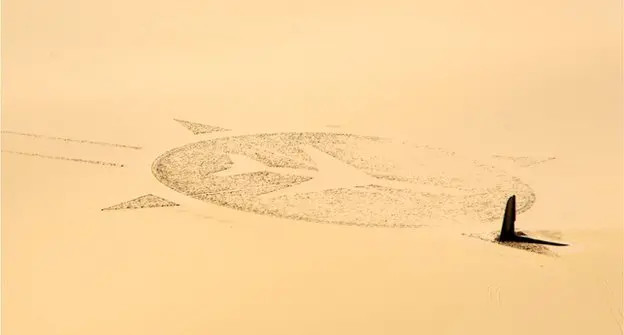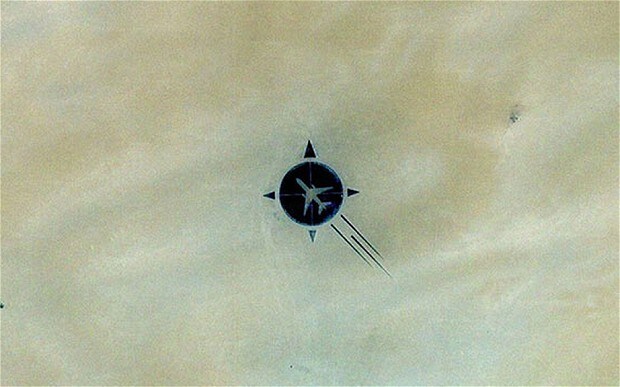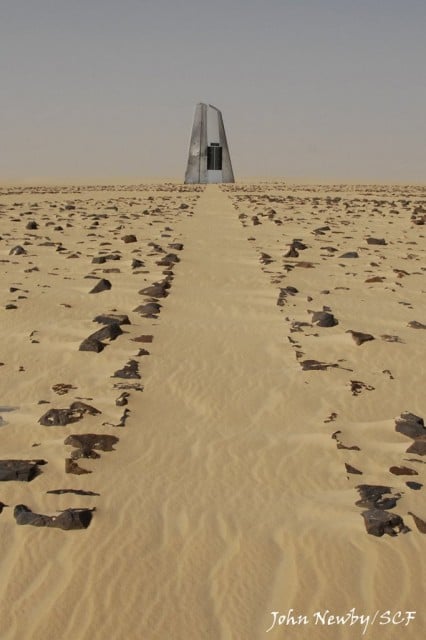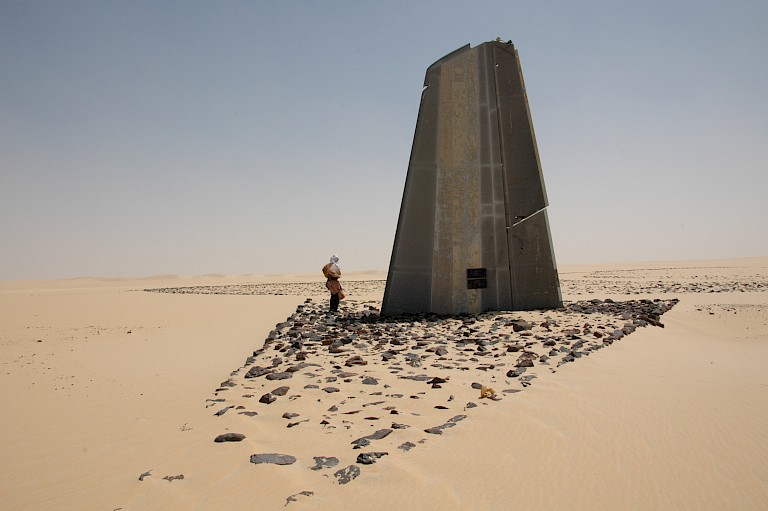A Journey from Tragedy to Triumph
In the heart of the Sahara Desert, at coordinates 16°51′53.748″N 11°57′13.362″E, lies an extraordinary landmark—a monument of memory and resolve. The UTA Flight 772 Memorial, visible from space, stands as a testament to the resilience and dedication of one man: Guillaume Denoix de Saint Marc.
The Catalyst for Change
On September 19, 1989, UTA Flight 772 was en route from Brazzaville, Congo, to Paris when it was destroyed by a bomb, killing all 156 passengers and 14 crew members. Among the victims was Jean-Henri Denoix de Saint Marc, Guillaume's father. The tragedy set Guillaume on an 18-year journey for justice, transforming personal grief into powerful advocacy.
Guillaume was 26 years old, managing a sales and marketing company in Paris, when he received the devastating news of his father's death. The immediate aftermath was shrouded in confusion and silence, with families left to rely on sparse news bulletins. The confirmation of the bombing, discovered through traces of explosive residue, propelled Guillaume into a relentless pursuit of accountability.
A Confrontation in Paris
In 2002, a turning point arrived when Guillaume learned of Saif al-Islam Gaddafi's visit to Paris. Saif, the son of Libyan leader Muammar Gaddafi, was attending a conference to open an exhibition of his paintings. Fueled by frustration and anger, Guillaume attended the event, confronting Saif with the words, "My father was in the DC10." This bold move initiated a dialogue that would lead to a historic negotiation.
Through a series of meetings, including numerous trips to Libya, Guillaume engaged in discussions with Saif al-Islam Gaddafi, with the aim of obtaining recognition of Libya's responsibility and fair compensation for the families of the victims. Despite no previous experience in negotiations, Guillaume's background as a salesman and his understanding of diverse cultures proved invaluable. He insisted on equal compensation for all victims, regardless of nationality—a principle that was initially resisted by Libyan negotiators. During these negotiations, he brought the victims together in the association “Les Familles de l'Attentat du DC10 d'UTA” created for the occasion.
The Historic Settlement
After intense negotiations, Libya agreed in January 2004 to pay $170 million—one million dollars for each of the 170 victims. The first payment was transferred the following day, marking a significant victory for the victims' families. This process was not without its challenges, as Guillaume had to track down and verify the identities of approximately 1,800 relatives worldwide, ensuring the funds reached the rightful claimants.
To facilitate this, Guillaume helped create a foundation, the "Fondation de l'attentat du DC10 d'UTA," hosted by the Caisse des Dépôts et Consignations, to manage the distribution of funds and continue supporting victims of terrorism. Although seven American families chose to pursue their own legal actions, only two others refused their share, demonstrating the success of Guillaume's fair approach.
The Memorial in the Desert
Beyond the settlements, Guillaume envisioned a lasting tribute—a memorial at the crash site in the Ténéré Desert. In March 2007, he led a team to this inhospitable terrain, overcoming extreme temperatures and security risks. The memorial features a life-size silhouette of the DC-10, surrounded by a circle of stones and 170 broken mirrors, each symbolizing a lost life. It is a masterpiece of unity, constructed by a team consisting of members from the local tribes, the Toubou, the Tuareg, and the Hausa, in a spirit of cooperation.
The memorial's design was inspired by the pioneering Aeropostale, using large stone circles for navigation across the Sahara. It serves as both a visual landmark from above and a symbol of enduring memory, ensuring the victims are not forgotten.
A Legacy of Advocacy
Guillaume's journey did not end with the memorial. He founded a foundation for victims of terrorism, channeling the remaining settlement funds into support and advocacy. As the executive director for 13 years, he continued to fight for justice and support for those affected by terrorism, drawing from his personal experience to guide others.
His relentless dedication has not been without personal cost. The pursuit of justice strained his business and marriage, but Guillaume remains steadfast in his mission. "We want to show there is not a spirit of vengeance, just justice and peace," he asserts, emphasizing that no cause can justify terrorism.
A Message for the World
The UTA Flight 772 Memorial stood as a beacon of hope and resilience.
Its visibility on Google Earth has brought international attention, ensuring the victims' legacy endures. Guillaume's story is one of transformation—turning grief into action, tragedy into tribute, and personal loss into a universal message of peace and justice.
Through his efforts, Guillaume Denoix de Saint Marc has not only honored his father's memory but has also left an indelible mark on the world, advocating for a future where justice prevails, and victims are never forgotten.
Unfortunately, in November 2023, the memorial was intentionally and severely damaged. By attacking this symbol, the desecrators targeted the 170 victims of this attack and their families a second time.
In a world often shadowed by division, Guillaume's legacy is a reminder of the power of resilience, compassion, and unity.
Watch (only in French) Documentary/ Documentaire



